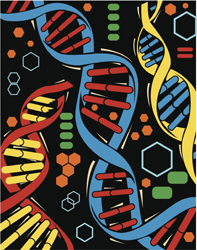Changing the collective view about DNA
Funded by the EU, researchers on the DNA AND SOCIETY project began their study with the conviction that people think that genes are responsible for many aspects of human behaviour. They called this perspective 'determinism'. It was fuelled by the excitement felt by both the scientific community and the general public due to the discovery of DNA.To test their idea, the researchers analysed two sources of information: scientific literature related to discoveries in the genetics field over the last 60 years, and the newspapers Le Monde, The New York Times, The Times and The Sunday Times. About 900 articles were examined over 3 time windows — the first 6 months of 1990, the first 6 months of 2000 and the first 6 months of 2010. The articles were divided into two groups — science and culture, and customs and society.The results showed that the articles in the first group became increasingly less deterministic between 2000 and 2010 (73 % versus 49 %), while the articles in the second group became increasingly more deterministic over the same time period (62 % versus 82 %).Extrapolating from these findings, the researchers believe that a deterministic view has led to two misunderstandings. First, many people believe that a specific gene determines each characteristic in a predictable way. Second, they also believe that brain performances, including numerous somatic traits such as skin colour and body structure, are also at least partially the product of genes. Recent discoveries, however, have shown that genes are only one part of the story. Rather, it is the interaction between genetics and the nervous system that influences and ultimately determines human behaviour. The way to change collective, erroneous thinking on this topic is through effective communication. People need to be made aware that though it is tempting to think that DNA controls all behaviour, that perception is inaccurate. Through metaphorical narrative tools, it will be possible to change the perceptions of the public on both a rational and an emotional level. Policymakers should jump-start this process through increased support for new means of communication.







